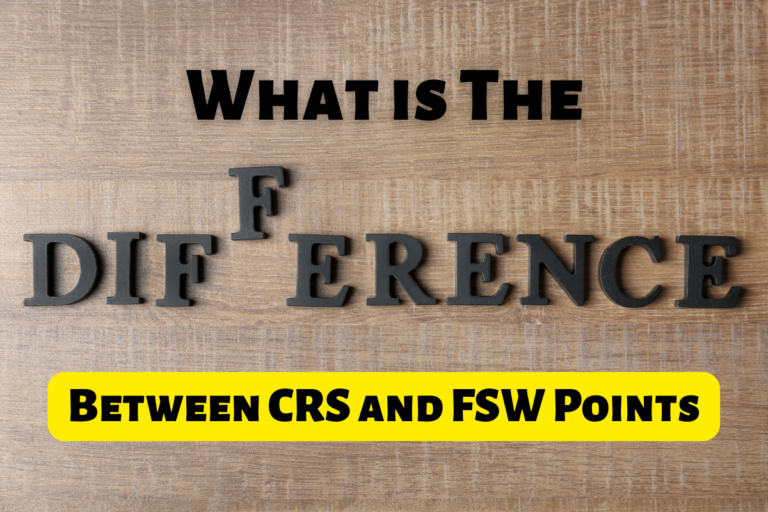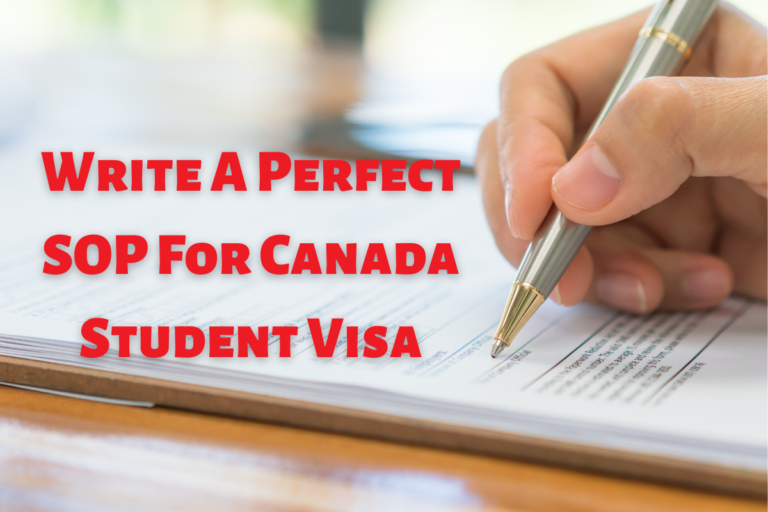Complete Guide to Study in Canada after 12th
Studying in Canada after completing 12th is a popular option among international students due to the high-quality education system, multicultural environment, and excellent career opportunities. Here is a complete guide to studying in Canada after 12th:
- Choose a Course and University: The first step is to choose the course and university you wish to study in. Canada has numerous universities that offer a wide range of courses across various fields, including engineering, business, humanities, social sciences, and more. You can research online or consult with an education counselor to determine which course and university are best for you.
- Meet Admission Requirements: To study in Canada, you need to meet the admission requirements of the university you have selected. Typically, you will need to provide academic transcripts, proof of English language proficiency, and a statement of purpose. In addition, some courses may require you to pass an entrance exam, such as the GMAT or GRE.
- Apply to the University: Once you have met the admission requirements, you can apply to the university. You can either apply directly to the university or through a common application portal such as the Ontario Universities’ Application Centre (OUAC). Make sure to submit your application before the deadline.
- Apply for a Study Permit: Once you have received an acceptance letter from the university, you need to apply for a study permit. A study permit is a document that allows you to study in Canada for a specific period. To apply for a study permit, you need to provide proof of acceptance, proof of funds to support yourself, and a valid passport.
- Prepare for Your Arrival: Before you leave for Canada, make sure to arrange your travel, accommodation, and other necessities. You will also need to make sure you have health insurance that covers you during your stay in Canada.
- Arrive in Canada and Begin Your Studies: Once you arrive in Canada, you can begin your studies. Attend orientation sessions to learn about the university, campus, and resources available to you. Make sure to stay focused on your studies and get involved in extracurricular activities to make the most of your experience.
- Look for Employment Opportunities: Canada offers excellent career opportunities for international students, both during and after their studies. You can look for part-time work or internships while studying, and after completing your studies, you can apply for a work permit to stay and work in Canada.
Studying in Canada after 12th is a rewarding experience that offers a world-class education and excellent career opportunities. By following these steps, you can make your journey to Canada a smooth and successful one.
How to get a Study Permit to Study in Canada after 12th?
To get a study permit to study in Canada after 12th, you need to follow these steps:
- Receive an acceptance letter from a designated learning institution (DLI): You must have an acceptance letter from a DLI before you can apply for a study permit.
- Check if you need a study permit: In general, if you plan to study in Canada for more than six months, you need a study permit. However, some programs and courses may be exempt. Check the Canadian government’s website to confirm if you need a study permit.
- Gather your documents: You need to provide several documents, such as your acceptance letter, proof of financial support, a valid passport, and other supporting documents such as transcripts, language test scores, and biometrics.
- Apply for the study permit: You can apply for a study permit online or by paper. To apply online, create an account on the Canadian government’s website and complete the application form. You will also need to pay an application fee.
- Wait for processing: After submitting your application, you will need to wait for it to be processed. The processing time can vary depending on your country of origin, but it can take several weeks to several months.
- Provide biometrics: Depending on your country of origin, you may be required to provide biometrics, which involves providing fingerprints and a photograph at a designated location.
- Receive your study permit: If your application is approved, you will receive your study permit. The study permit will have information such as the dates of validity, conditions, and any work restrictions.
It is important to note that getting a study permit to study in Canada after 12th can be a complex process, and it is recommended to research and check the specific requirements for your country and program before applying.
What are the Advantages of Studying in Canada After 12th
Studying in Canada after 12th offers numerous advantages for international students. Some of the key advantages include:
- High-Quality Education: Canada is renowned for its high-quality education system, which is consistently ranked among the best in the world. Canadian universities offer a wide range of courses and programs across various fields, providing students with a diverse learning experience.
- Multicultural Environment: Canada is a diverse and multicultural country, which provides a welcoming and inclusive environment for international students. You will have the opportunity to meet and interact with people from different cultures and backgrounds, which can broaden your perspective and enrich your learning experience.
- Excellent Career Opportunities: Canada offers excellent career opportunities for international students, both during and after their studies. Students can work part-time or find internships while studying, and after completing their studies, they can apply for a work permit to stay and work in Canada.
- Affordable Education: Compared to other study abroad destinations, education in Canada is relatively affordable. Tuition fees are lower than in many other countries, and the cost of living is also reasonable. In addition, many scholarships and bursaries are available to international students, which can help to offset the cost of education.
- High Standard of Living: Canada is a safe and peaceful country with a high standard of living. Canadian cities are known for their clean, safe, and friendly environments, which offer a comfortable and enjoyable experience for international students.
Overall, studying in Canada after 12th offers numerous advantages for international students, including a high-quality education, multicultural environment, excellent career opportunities, affordable education, and high standard of living.
Education System in Canada to Study after 12th
The education system in Canada to study after 12th is based on a combination of theoretical and practical learning, which aims to provide students with a well-rounded education. Here’s an overview of the education system in Canada:
- High School: High school education in Canada typically spans four years, from grade 9 to grade 12. In grade 12, students complete their final exams and receive a diploma. To qualify for admission to a Canadian university, students must have completed high school and obtained a high school diploma or equivalent.
- Post-Secondary Education: Post-secondary education in Canada includes colleges, universities, and technical institutes. Canadian universities offer a wide range of undergraduate and graduate programs across various fields, including arts, science, engineering, business, and more. Colleges and technical institutes offer diplomas and certificates in a variety of vocational and technical fields.
- Degree Programs: Canadian universities offer degree programs, which typically take four years to complete. Undergraduate degree programs include a Bachelor of Arts (BA), Bachelor of Science (BSc), and Bachelor of Commerce (BCom), among others. Graduate degree programs include a Master of Arts (MA), Master of Science (MSc), and Doctor of Philosophy (PhD).
- Co-Op Education: Many Canadian universities and colleges offer co-op education programs, which provide students with the opportunity to gain practical work experience while studying. Co-op programs typically alternate between academic terms and work terms, allowing students to apply their classroom learning in real-world settings.
- Grading System: The grading system in Canada is based on a percentage scale, where a grade of 50% is considered a pass. The letter grade system is also used, where A is the highest grade and F is a failing grade.
- Language Requirements: International students must meet language requirements to study in Canada. Most universities and colleges require a minimum score on an English language proficiency test, such as IELTS or TOEFL.
Overall, the education system in Canada offers a wide range of programs and opportunities for students to pursue their academic and career goals. The system is designed to provide a high-quality education that prepares students for success in their chosen field.
Eligibility And Requirements to Study in Canada After 12th
To be eligible to study in Canada after 12th, international students need to meet certain requirements and provide relevant documents. Here are the general eligibility requirements to study in Canada after 12th:
- Academic Requirements: To be eligible for admission to a Canadian university, students must have completed their high school education and obtained a high school diploma or equivalent. The academic requirements may vary depending on the university and program you choose. Generally, a minimum average of 70-80% is required for admission to most undergraduate programs.
- Language Proficiency: International students must demonstrate proficiency in English or French. Most Canadian universities and colleges require a minimum score on an English language proficiency test, such as IELTS or TOEFL. Students who have completed their high school education in English may be exempted from this requirement.
- Visa and Study Permit: International students must obtain a student visa and study permit to study in Canada. To apply for a study permit, students must provide an acceptance letter from a Canadian university or college, proof of financial support, and a valid passport. It is recommended to apply for a study permit as early as possible, as the process may take several weeks.
- Health Insurance: International students must have health insurance to cover any medical expenses while studying in Canada. Most universities and colleges offer health insurance plans for international students, which can be purchased at the time of enrollment.
- Financial Support: International students must demonstrate that they have enough financial support to cover their tuition fees, living expenses, and other related costs while studying in Canada. The amount of financial support required may vary depending on the university and program you choose.
Overall, to be eligible to study in Canada after 12th, international students must meet the academic requirements, demonstrate language proficiency, obtain a visa and study permit, have health insurance, and provide proof of financial support. It is recommended to research and check the specific requirements for the university and program you are interested in before applying.
Top Courses to Study in Canada after 12th
Canada offers a wide range of courses and programs for international students who want to study after 12th. Here are some of the top courses to study in Canada after 12th:
- Engineering: Canada is known for its world-class engineering programs, which offer a variety of specializations, including mechanical engineering, electrical engineering, civil engineering, and more.
- Business and Management: Canada is home to some of the best business schools in the world, offering undergraduate programs in business administration, finance, marketing, accounting, and more.
- Computer Science and Information Technology: With the growth of the technology industry, computer science and IT programs are becoming increasingly popular among international students in Canada. Students can choose from a variety of specializations, such as software engineering, artificial intelligence, cybersecurity, and more.
- Health Sciences: Canada is known for its high-quality healthcare system, and many universities offer undergraduate programs in health sciences, including nursing, medicine, dentistry, and other health-related fields.
- Environmental Science and Sustainability: With a focus on sustainability and the environment, Canada offers a variety of programs in environmental science, ecology, and sustainability.
- Arts and Humanities: Canadian universities offer a wide range of undergraduate programs in arts and humanities, including history, literature, philosophy, and more.
- Media and Communications: Canadian universities offer undergraduate programs in media and communications, including journalism, public relations, advertising, and more.
Overall, Canada offers a wide range of programs and courses for international students who want to study after 12th. It is recommended to research and check the specific programs offered by the universities and colleges that you are interested in before applying.
Admission Process to Study in Canada after 12th
The admission process to study in Canada after 12th can vary depending on the university and program you choose. However, here are the general steps involved in the admission process:
- Research and Choose a Program: Research the universities and programs that you are interested in and make sure you meet the academic requirements and any other eligibility requirements.
- Apply to the University: Apply to the university or college of your choice. Most universities and colleges have an online application process. Make sure to provide all the required documents, including academic transcripts, English language proficiency test scores, and any other documents required by the university.
- Receive an Offer of Admission: Once your application is reviewed, you will receive an offer of admission from the university or college. The offer will usually be conditional on you meeting any outstanding requirements, such as submitting final high school transcripts.
- Accept the Offer: If you are satisfied with the offer, you can accept it by paying a deposit or following the instructions provided by the university.
- Apply for a Study Permit: After accepting the offer, you can apply for a study permit and visa. You will need to provide proof of acceptance to a Canadian university or college, proof of financial support, and other documents required by the Canadian government.
- Prepare for Your Arrival: Once your study permit and visa are approved, you can prepare for your arrival in Canada. This may include arranging housing, transportation, and other logistical matters.
Overall, the admission process to study in Canada after 12th involves researching and choosing a program, applying to the university, receiving an offer of admission, accepting the offer, applying for a study permit, and preparing for your arrival in Canada. It is recommended to research and check the specific admission requirements for the university and program you are interested in before applying.
Cost to Study in Canada after 12th
The cost to study in Canada after 12th varies depending on the university, program, and location you choose. Here are some of the expenses you may need to consider:
- Tuition Fees: Tuition fees can range from CAD 10,000 to CAD 50,000 per year, depending on the program and university. Generally, technical programs such as engineering, nursing, and computer science are more expensive than arts and humanities programs.
- Accommodation: The cost of accommodation can vary depending on the location, type of accommodation, and whether you choose to live on or off-campus. On-campus housing can cost around CAD 8,000 to CAD 12,000 per year, while off-campus housing can cost around CAD 6,000 to CAD 18,000 per year.
- Living Expenses: Living expenses such as food, transportation, textbooks, and other personal expenses can vary depending on your lifestyle and location. As an estimate, it can cost around CAD 15,000 to CAD 20,000 per year.
- Health Insurance: International students are required to have health insurance while studying in Canada. The cost of health insurance can range from CAD 600 to CAD 1,200 per year, depending on the province and coverage.
- Other Expenses: Other expenses may include application fees, study permit and visa fees, and airfare.
It is important to note that the cost of studying in Canada after 12th can be high, but there are also scholarships and bursaries available for international students. It is recommended to research and check the specific costs and financial assistance available for the university and program you are interested in before applying.
Scholarships To Study in Canada After 12th
Canada offers several scholarships and bursaries to international students who want to study after 12th. Here are some of the scholarships available:
- Canada-ASEAN Scholarships and Educational Exchanges for Development (SEED): This scholarship provides financial support for students from ASEAN member countries to pursue short-term exchange programs or study full-time at the undergraduate level in Canada.
- Canadian Commonwealth Scholarship Program: This scholarship provides financial support for students from Commonwealth countries to pursue graduate-level studies in Canada.
- Canada Graduate Scholarships: This scholarship is awarded to outstanding students pursuing graduate-level studies in Canada in a wide range of disciplines.
- Vanier Canada Graduate Scholarships: This scholarship provides financial support to exceptional graduate students pursuing doctoral studies in health sciences, natural sciences, engineering, social sciences, and humanities.
- Canadian Francophonie Scholarship Program: This scholarship provides financial support to students from Francophonie member countries to pursue short-term exchange programs or full-time undergraduate or graduate studies in Canada.
- Canadian Rhodes Scholars Foundation Scholarship: This scholarship provides financial support to outstanding students pursuing graduate-level studies at the University of Oxford.
- Canadian-Asian Studies Association Scholarship: This scholarship provides financial support to students pursuing studies related to Asia at the undergraduate or graduate level in Canada.
It is recommended to research and check the specific scholarships and bursaries available for the university and program you are interested in before applying. Some universities also offer their own scholarships and bursaries, so it is worth checking with the university’s financial aid office.




